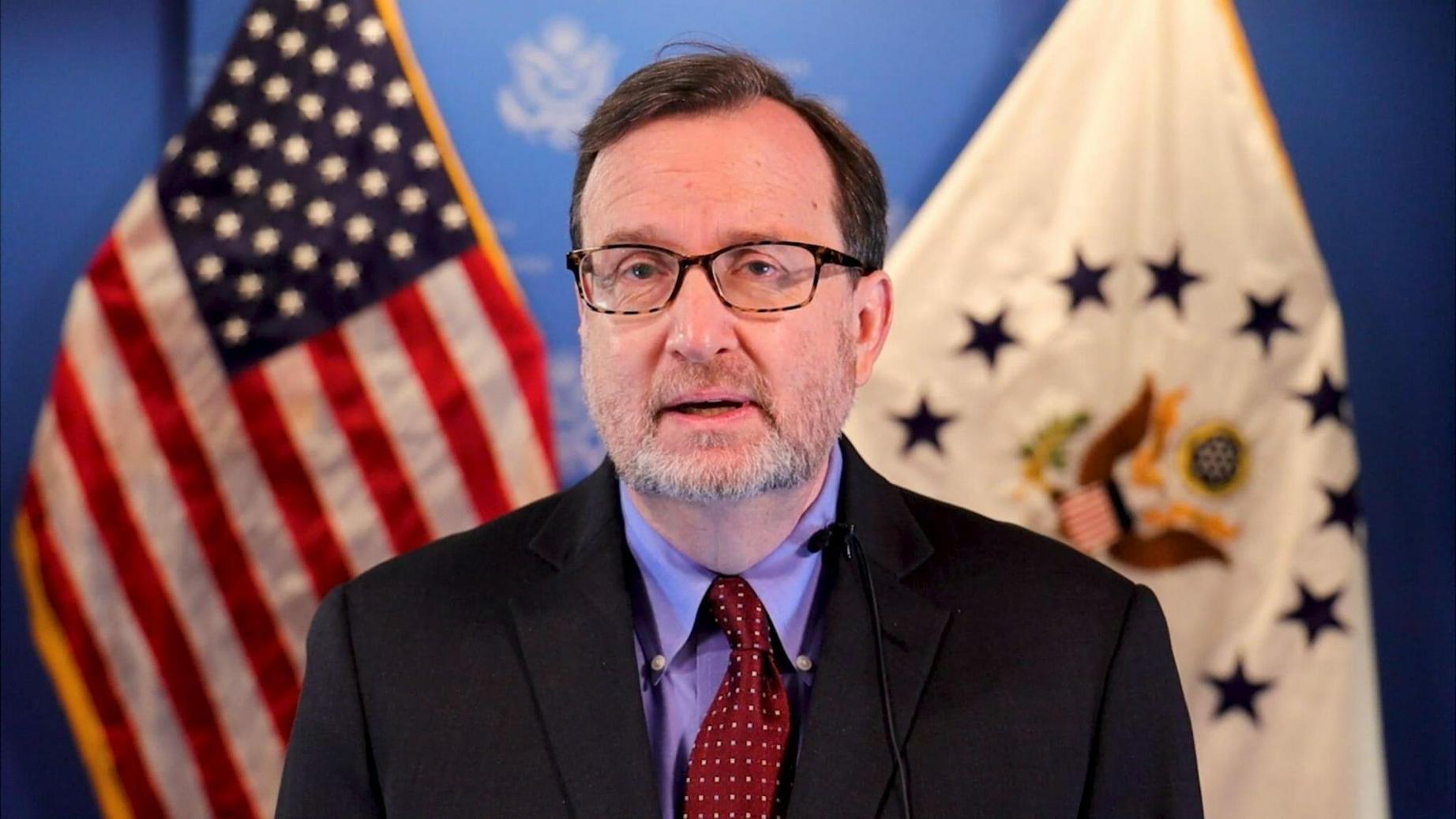By Abba Hamisu Sani
Africa-Press – Nigeria. Kaduna is one of the states in the North West geo-political zone of Nigeria. It used to serve as the headquarters of the defunct Northern Region.
Kaduna is also one of the states with a high level of insecurity in Nigeria, ranging from banditry and kidnapping for ransom to a history of several religious crises.
It was in Kaduna State that hundreds of members of the Islamic Movement of Nigeria (IMN), under the leadership of Sheikh Ibrahim El-Zakzaky, were massacred in 2015 by the Nigerian Army.
Another notable instance of mass killing in Kaduna was the tragedy in Tudun Biri village, where 85 people were killed by a military airstrike in a village just a few kilometers from the state capital.
The Nigerian military described the bombing as a mistake during its routine operations.
U.S. Ambassador’s Visit to Kaduna
The recent visit to Kaduna State by the United States Ambassador to Nigeria, Mr. Richard Mills, has been described by some international relations analysts as an attempt to strengthen the U.S. relationship with the Kaduna State government in pursuit of its broader—sometimes hidden—strategic interests.
During the visit, the American envoy told the Kaduna State Governor, Senator Uba Sani, that American investors are eager to collaborate with Kaduna State, which was previously known for its industrial strength, especially in textiles.
He stated that the U.S. government is ready to partner with Kaduna in areas of investment and industry. It also aims to assist the state in capacity building and in addressing challenges related to security, the economy, and public health.
The Ambassador, visiting Kaduna for the first time, also praised Governor Uba Sani’s administration for attracting investment through the establishment of robust policy frameworks, provision of attractive incentives, and the demonstration of strong political will. As a result, he noted, top American businesses are showing a willingness to invest in the state.
In response, Governor Uba Sani assured the Ambassador and his team of his administration’s commitment to strengthening the existing partnership with the U.S. government.
“We are creating a conducive environment for both existing and potential businesses to thrive, and are designing creative and innovative programs and projects that will improve the living conditions of our people,” Governor Uba Sani said.
Be Careful of Hidden Interests
Umar Muhammad, a political and international affairs analyst, stated that the U.S. Ambassador’s visit to Kaduna is part of a broader U.S. strategy to expand its influence in northern Nigeria, where the population is predominantly Muslim.
“Kaduna, being a state with significant Muslim and Christian populations and having suffered from severe insecurity, can be seen by the U.S. as a gateway to the core north. However, gaining acceptance in the North West will not be easy,” he said.
He added that many Northerners associate the rise of Boko Haram—one of the most disturbing insurgencies in the region—with U.S. interests.
Umar emphasized that both the Kaduna State government and Nigeria at large need to approach their relationship with the United States tactically, especially in light of recent allegations that several U.S.-based NGOs are supporting insurgency in the North East.
Another Perspective on Nigeria-U.S. Relations
Victor Kalu, a journalist and international relations commentator, noted that while the United States remains the largest foreign investor in Nigeria—with investments largely in the petroleum, mining, and wholesale trade sectors—its relationship with Nigeria often appears one-sided.
In 2022, two-way trade in goods between the United States and Nigeria totaled over $8.1 billion.
U.S. exports to Nigeria include vehicles, wheat, machinery, fuels, and plastics. Nigerian exports to the U.S. include oil, cocoa, cashew nuts, and animal feed.
Multiple U.S.-based film and entertainment companies are active in Nigeria, and the country’s creative industries hold significant export potential.
However, Kalu argues that the U.S.’s relationship with developing countries like Nigeria can often resemble a one-way street. Nigeria, he said, gains little in comparison to the U.S., which benefits heavily—particularly from oil, Nigeria’s major economic resource.
He concluded that states like Kaduna, which have experienced prolonged insecurity involving banditry, kidnapping, and religious conflict, must exercise caution in their dealings with the U.S., regardless of the form those dealings may take.
For More News And Analysis About Nigeria Follow Africa-Press







